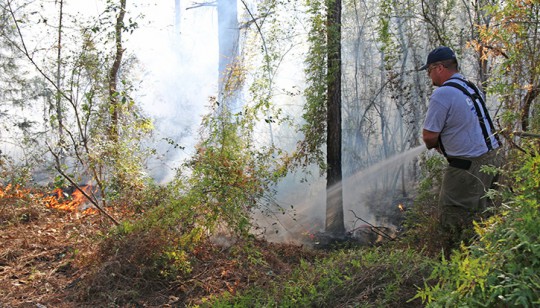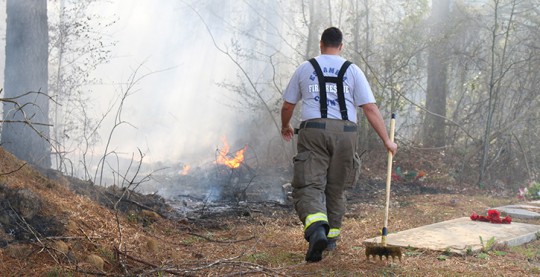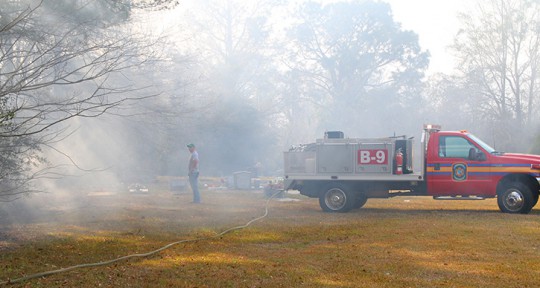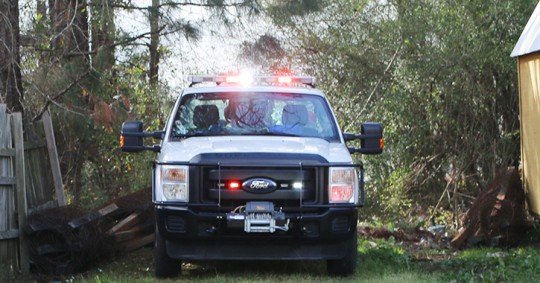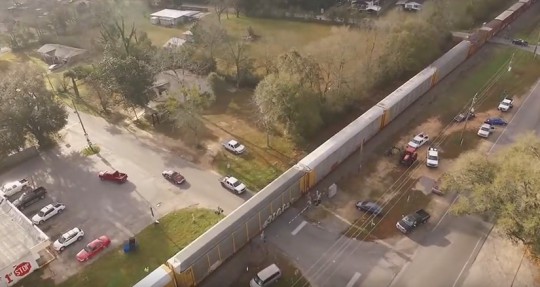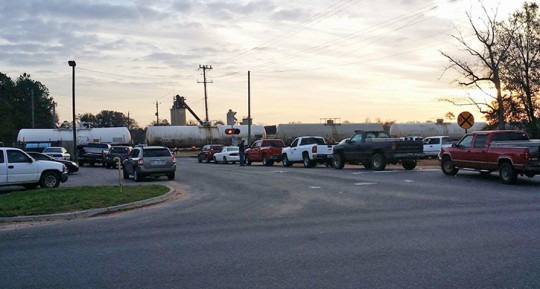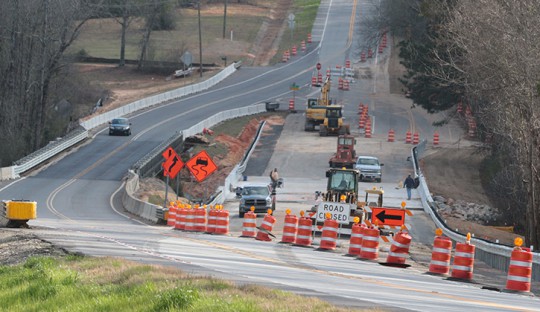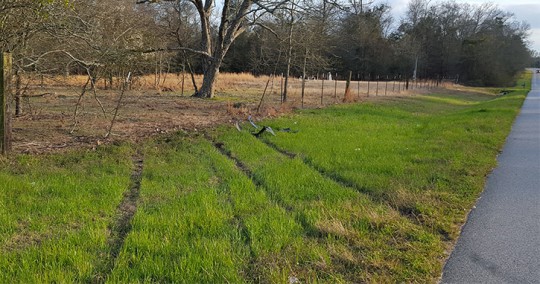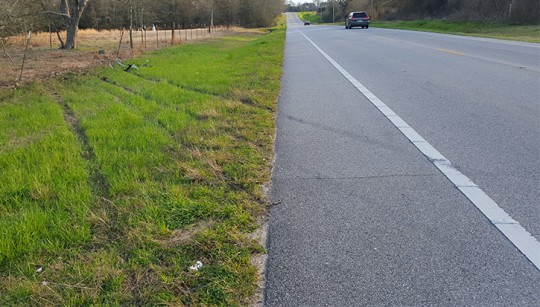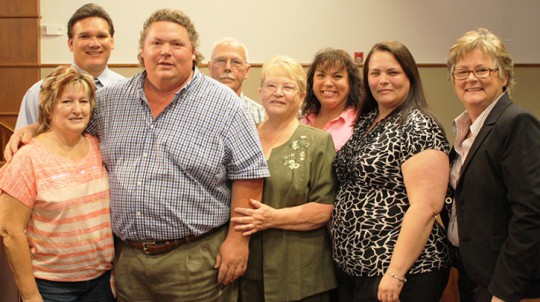Dejuana Lenese Lail
March 9, 2016
Dejuana Lenese Lail “Sally” of Flomaton, passed away Monday, March 7, 2016, after fighting a battle with breast cancer. Sally was born on May 23, 1967, in Brewton to J.D. and Mary Bradley. She was a lifelong resident of this area. Sally married her soul mate and best friend, Jerome on August 16, 1985. Sally accepted Jesus in her heart during her young adult years and was baptized. Sally had a strong faith and lived life to its fullest. This faith she had and the support of her family and friends is what got her through this fight with cancer. Sally didn’t win her fight here on earth but she is now in heaven. A place we can only imagine about with a perfect body with Jesus fellowshipping with family and friends that have gone on before.
Sally is survived by her loving husband, Jerome; her precious daughter, Jessica; brother, Roland (Tammy) Bradley, brother, Chris (Erica) Bradley; sister, Sonya (Rodney) Greer, brother, Charlie Bradley, sister, Francis Bradley, brother, Jonathan Bradley; in laws, Kenneth and Maggie Lail; brother-in-law, Lewis Lail; 12 nieces; six nephews; six great-nieces; nine great-nephews; many aunts, uncles, cousins, and her lifelong friend, Cindy Brittingham as well as many special friends, and the family dog, Tigger.
Sally is preceded in death by her parents, J.D. and Mary Bradley,and brother Anthony (Bo) Bradley.
A special thank you to the staff of Covenant Care for your care and support.
Visitation will be held at Jay Funeral Home Thursday, March 10, 2016, from 6 p.m. until 8 p.m. The family will meet at 5 p.m.
Funeral services will be Friday, March 11, 2016, at 1 p.m. at the Jay Funeral Home with Pastor Earl Green officiating.
Pallbearers will be Cody Bradley, Keith Bradley, Danny Higdon, Brad Solomon, Allen Dunn, Robbie Warren, Darrell Ford and Logan Dean.
Burial will be at Pine Level Baptist Church Cemetery.
Steve Smith
March 9, 2016
Steve Smith passed away unexpectedly at his residence in Pensacola on March 1, 2016. He was born March 23, 1959, in Warrenton, VA (Manassas, VA) to Peggy Joyce Langston and Douglas Ray Smith. He lived in Virginia and Maryland before moving to Pensacola in 1973 and he attended W. J. Woodham High School and Pensacola Jr. College. He joined the US Army in 1977 and afterwards did tree service work and also worked as a taxi driver as well as owning his own taxicab. Steve loved music and played the guitar and harmonica equally well. He was quite the storyteller, enjoyed stamp collecting and writing poetry. He enjoyed spending time with family and friends and was very devoted to his pets. Steve made friends everywhere he went and his friendships have endured throughout his lifetime.
He is preceded in death by his mother, Peggy Joyce Langston; and his son, Alexander Raymond Smith.
Steve is survived by his sons, Nicholas Smith, Michael (Julie) Smith, Steven (Jamie) Crumpler; grandchildren,Kayleigh Crumpler, Alexander Crumpler, Alicia Crumpler, Austin Crumpler and Summer Smith; father, Douglas Ray Smith; brother, Danny Smith; sisters, Kim Williamson, Cindy (Ernie) Boardwyne; nieces, Jennifer Boardwyne, Jamie (Tyler) Thompson, nephews; David (Nichole) Boardwyne, Benjamin Williamson, Justin Williamson, Brandon Williamson; great-nephew, Samson Boardwyne and his beloved pets; Oggie and Suzy. He is also survived by a special friend Marylda Alves.
A Memorial service is being held in celebration of Steve’s life on Sunday, March 13, 2016, with visitation from 2 p.m. until 3p.m. with the Memorial Service following at 3 p.m. at Faith Chapel Funeral Home North.
Faith Chapel Funeral Home North, 1000 Highway 29 South, Cantonment, is in charge of arrangements.
Wildfire Burns 1.5 Acres In Walnut Hill
March 8, 2016
Firefighters battled a wildland fire in Walnut Hill Tuesday afternoon. The fire burned over about an acre and a half near the dead end of Juniper Street. It burned near several homes, a church and cemetery, but no structures were threatened by the blaze.
The cause of the fire was not immediately known. There were no injuries reported.
The Walnut Hill, McDavid and Molino stations of Escambia Fire Rescue and the Florida Division of Forestry responded to the fire. Forestry used a bulldozer to create a line around the fire.
NorthEscambia.com photos, click to enlarge.
Broken Down Train Blocks Crossings In Cantonment, Cottage Hill – Again
March 8, 2016
A CSX train blocked crossings from Becks Lake Road in Cantonment north to McKenzie Road in Cottage Hill Tuesday morning, leaving numerous residents unable to enter or exit their neighborhoods for hours.
According to CSX officials, the train was stopped due to a warning light. The train was on the move a little after 9 a.m.
“First responders have access to the impacted neighborhoods through a private road should the need arise,” Escambia County spokesperson Joy Tusbooka said while the train was stopped.
An similar incident occurred on January 28, blocking many of the same crossing for an entire morning.
Pictured top: An aerial view of the train blocking crossings in Cantonment. Image courtesy Eric McCowan for NorthEscambia.com, click to enlarge. Pictured below: The train blocks Becks Lake Road in Cantonment. NorthEscambia.com photo, click to enlarge.
Traffic To Switch Today To New Highway 97 Bridge In Walnut Hill
March 8, 2016
Traffic on Highway 97 over Little Pine Barren Creek in Walnut Hill will encounter intermittent lane restrictions today as crews make preparations and transition traffic back onto the new bridge and begin demolition of the temporary detour structure.
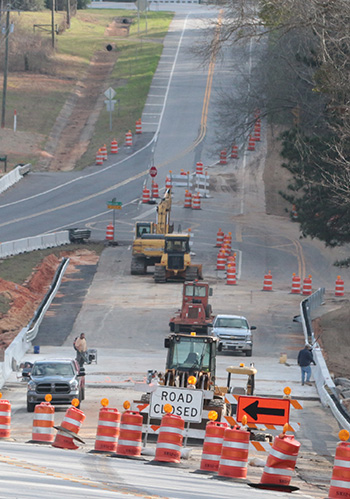 The work is part of a $2.5 million contract to replace the existing 75-year old Highway 97 bridge over Little Pine Barren Creek, milling and resurfacing, guardrail, drainage, new signs and pavement markings.
The work is part of a $2.5 million contract to replace the existing 75-year old Highway 97 bridge over Little Pine Barren Creek, milling and resurfacing, guardrail, drainage, new signs and pavement markings.
All activities are weather dependent and may be delayed or re-scheduled in the event of inclement weather. Motorists are reminded to use caution, especially at night, when traveling in a work zone and to watch for construction workers and equipment entering and exiting the roadway.
Pictured: Final work late Monday afternoon on a new Highway 97 bridge over Little Pine Barren Creek in Walnut Hill. NorthEscambia.com photos, click to enlarge.
Budget Deal Reached, Session To End On Time
March 8, 2016
House and Senate leaders announced a deal on the state budget during a late-night meeting Monday, pumping more than $120 million in last-minute projects into the spending plan and setting the Legislature on course to end its annual session Friday, as scheduled.
The final negotiating session between the budget chiefs for the two chambers — House Appropriations Chairman Richard Corcoran, R-Land O’ Lakes, and Senate Appropriations Chairman Tom Lee, R-Brandon — included agreements on tens of millions of dollars in education spending along with the additional projects.
The full House and Senate are expected to vote on the proposal Friday, after a required 72-hour review period.
Simply reaching a deal on the roughly $80 billion spending plan for the year beginning July 1 was a victory. Last year, a conflict over hospital funding led to the contentious implosion of the regular session and prompted a rare June meeting where lawmakers finally hammered out their differences.
But despite criticism last year of last-minute additions to the budget, Lee and Corcoran once again agreed to three lists of projects that spread another $123.1 million throughout the spending plan, with money going to everything from a construction project at a state university to an infusion of cash for the Agency for Persons with Disabilities.
Items on the so-called “sprinkle lists” are often projects that appeared in earlier versions of one of the chamber’s budget plans, but dropped out during negotiations. The lists themselves, however, are not publicly vetted until one of the last meetings of the House-Senate conference committee that reconciles the competing proposals.
The Senate spent almost $71.8 million on its list, formally referred to as “supplemental funding initiatives.” The House offered $30.3 million on its version, along with nearly $21 million more in a list of additional water projects.
For example, the Senate poured another $24.8 million into the Agency for Persons with Disabilities. Senate President Andy Gardiner, R-Orlando, has focused on people with disabilities as one of his priorities this legislative session. The chamber also used $11 million to fund a building at the University of North Florida, the only one of the 12 state universities that didn’t receive construction money in a previous list of education facilities.
The House, meanwhile, used $7 million to replace radio equipment for state law enforcement agencies, something the Senate had strenuously opposed and that had been dropped from spending plans during a public meeting on Sunday.
“Our only concern was that it not go into a spreadsheet that included any indication that the Senate bought into that notion at the subcommittee level,” Lee said, referring to negotiations that took place before he and Corcoran began discussions. ” … It needed to come late if it was going to happen.”
At the same time, he left little doubt that the Senate was still skeptical about the need for the equipment from a third-party vendor.
“There was no request from the agencies for these radios,” he said. “They don’t want them, but they’re going to get them anyway. We’ll see if they take them.”
Asked why the radios were important enough to the House to push them back into the plan at the last minute, Corcoran essentially said the House did so because it was the chamber’s prerogative.
“We have the power of the purse,” he said. “We’re going to make the decisions and the executive branch has the power of vetoes.”
The two men defended the budget process in general and the sprinkle lists specifically. Corcoran pointed to the decision to put money back into the budget for the project at the University of North Florida, which has been approved by the Florida Board of Governors.
“That’s why we have a supplemental list, so that we can make sure that we can correct those mistakes, and we did,” he said.
Lee also suggested that the spending plan could have been even worse.
“The things you see in this budget don’t tell the whole story,” he said. “There are a good number of things you don’t see in this budget that, but for Chairman Corcoran and myself, would be in here, and they wouldn’t be good government.”
As for the education budget, Corcoran and Lee agreed to spend more than $40 million on the “Best and Brightest” bonus program, which awards up to $10,000 in extra money to teachers who scored in the top fifth of all students on their college-admissions tests and are rated highly effective. The House then folded another $4 million into the program through its sprinkle list.
The two sides also agreed to $36.9 million in funding for high-performing universities, and increased the amount of existing money that universities would kick into a performance funding formula to $275 million, the share favored by the House.
by Brandon Larrabee, The News Service of Florida
Scott Signs Death Penalty Fix Into Law
March 8, 2016
Gov. Rick Scott on Monday signed into law a measure designed to fix the state’s death-penalty sentencing process after it was found unconstitutional by the U.S. Supreme Court, but the new law will almost certainly be challenged.
The Jan. 12 Supreme Court ruling — handed down on the opening day of the legislative session — found that Florida’s system of giving judges, and not juries, the power to impose death sentences was an unconstitutional violation of defendants’ Sixth Amendment right to trial by jury.
“It is my solemn duty to uphold the laws of Florida and my foremost concern is always for the victims and their loved ones. I hope this legislation will allow families of these horrific crimes to get the closure they deserve,” Scott said in a statement.
With the death penalty effectively on hold in Florida, lawmakers hurried to come up with a solution before the legislative session ends Friday. Scott signed the bill (HB 7101) into law just days after the Senate approved it.
While the new law establishes a revamped system for defendants charged with capital crimes who have not yet been sentenced, it is unlikely to have any impact on the cases of Florida’s 390 Death Row inmates. The Florida Supreme Court is sorting through some of the cases now, after lawyers for the inmates filed a flurry of appeals in the wake of the ruling.
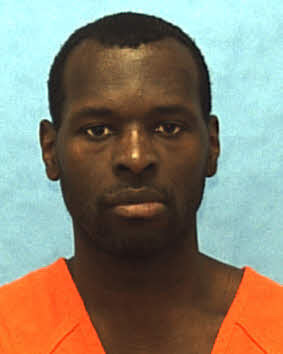 The 8-1 U.S. Supreme Court decision, in an Escambia County case known as Hurst v. Florida, dealt with the sentencing phase of death-penalty cases after defendants are found guilty, and it focused on what are known as aggravating circumstances that must be determined before defendants can be sentenced to death. A 2002 U.S. Supreme Court ruling, in a case known as Ring v. Arizona, requires that determinations of such aggravating circumstances must be made by juries, not judges.
The 8-1 U.S. Supreme Court decision, in an Escambia County case known as Hurst v. Florida, dealt with the sentencing phase of death-penalty cases after defendants are found guilty, and it focused on what are known as aggravating circumstances that must be determined before defendants can be sentenced to death. A 2002 U.S. Supreme Court ruling, in a case known as Ring v. Arizona, requires that determinations of such aggravating circumstances must be made by juries, not judges.
While the Supreme Court ruling focused on aggravating circumstances, nearly all of the legislative debate centered on whether Florida should require unanimous jury recommendations about whether defendants should be put to death.
The new law, which went into effect immediately, would require at least 10 jurors to recommend death for the penalty to be imposed — a compromise between the House and the Senate, which had originally favored unanimous jury recommendations. Prosecutors, including Attorney General Pam Bondi, pushed for the 10-2 recommendation, arguing that unanimity would allow a single juror to hijack the process.
Of the 31 states with the death penalty, Florida is one of only three that do not require unanimous jury recommendations for death to be imposed. The others — Alabama and Delaware — require at least 10 jurors to recommend death. Until Monday, Florida law had allowed majorities of juries to recommend death.
The Hurst ruling did not specifically address unanimous jury recommendations to judges, a process that happens after jurors determine whether sufficient aggravating factors exist. Death penalty experts advised lawmakers that failing to require unanimous jury recommendations could make the state’s death penalty law vulnerable to future court decisions.
Although both chambers overwhelmingly approved the measure, a key component is expected to prompt a legal challenge.
The new law would require juries to unanimously determine “the existence of at least one aggravating factor” before defendants could be eligible for death sentences. Florida law lists 16 aggravating circumstances — such as whether a crime was committed for pecuniary gain or if a victim was under 12 years of age — that juries could consider.
Defense lawyers argue that the list is so broad that virtually any murder could be considered a capital crime.
Allowing a single aggravating circumstance — even with a unanimous jury finding, as the proposed law would require — to determine whether a defendant is death-penalty eligible could run afoul of the Supreme Court’s consistent view that capital punishment should be reserved for a narrow class of offenders who commit the worst crimes, the lawyers contend.
Because of that, the proposed law could violate Eighth Amendment protections against cruel or unusual punishment, Rex Dimmig, public defender in the 10th Judicial Circuit, told The News Service of Florida last week.
But lawmakers remained confident that the law would pass muster.
“I would have felt more comfortable if it (jury recommendations) had been unanimous, but the way it is right now, I feel like we’ve got a good death penalty bill. I feel like it will hold up in court,” Senate Criminal Justice chairman Greg Evers, R-Baker, said.
Timothy Lee Hurst, now 36, was convicted in the 1998 murder of Cynthia Lee Harrison, who was an assistant manager at a Popeye’s Fried Chicken restaurant on Nine Mile Road where Hurst worked. Harrison’s body was discovered bound in a freezer, and money was missing from a safe, according to a brief in the case.
by Dara Kam, The News Service of Florida
FHP Seeks Highway 97 Hit And Run Driver
March 8, 2016
The Florida Highway Patrol is looking for a driver involved in a hit and run crash that occurred sometime early Monday morning on Highway 97 just south of the Alabama state line.
Troopers said someone driving a 2007-2009 white Lincoln MKZ was traveling southbound on Highway 97 at Greenland Road. The vehicle left the roadway onto the east shoulder of Highway 97 and struck a fence. The vehicle continued southeast and struck small trees and a fence in the 7200 block of Greenland Road. The vehicle then traveled back through the fence where it entered the property and fled the scene.
Parts from the vehicle were collected at the scene and submitted as evidence Troopers said the time of the crash was not known.
Anyone with information about the vehicle, driver or accident is asked to call Crime Stoppers at (850) 433-STOP or Trooper Tucker at (850) 484-5000 ext. 330.
NorthEscambia.com photos, click to enlarge.
Smillie Prefiles For District 5 Commission Seat
March 8, 2016
Political newcomer Dan J. Smillie Jr. pre-filed as a Republican Monday for Escambia County Commissioner, District 5.
Smillie, a resident of the 4500 block of West Highway 4 in Bratt, recently retired with 30 years of service as a field supervisor with the Escambia County Public Works Department, Roads Division.
Pictured top: Danny Smillie, Jr., pictured in the blue-checkered shirt, after being recognized on his retirement from Escambia County. File photo for NorthEscambia.com, click to enlarge.
Marijuana Expansion Proposal Headed To Scott
March 8, 2016
Terminally ill patients would have access to marijuana under a measure that would legalize full-strength pot for the first time in Florida if signed into law by Gov. Rick Scott.
The proposal, approved Monday by the Senate, would add cannabis to a list of experimental drugs available to patients diagnosed with illnesses that could result in death within a year without life-saving interventions.
 The measure also addresses the state’s existing low-THC law, intended to aid patients — including children with severe epilepsy — who suffer from chronic seizures or cancer. Implementation of the 2014 law is more than a year behind schedule because of legal challenges, and this year’s legislation is aimed at preventing further delays.
The measure also addresses the state’s existing low-THC law, intended to aid patients — including children with severe epilepsy — who suffer from chronic seizures or cancer. Implementation of the 2014 law is more than a year behind schedule because of legal challenges, and this year’s legislation is aimed at preventing further delays.
The Republican-dominated Legislature approved the medical cannabis for dying patients months before voters will have the opportunity to decide on a much broader marijuana initiative. A proposed constitutional amendment on the November ballot would allow patients with a wide variety of illnesses to use the marijuana treatment if their doctors order it. A similar measure narrowly failed to pass in 2014.
During debate Monday on the Legislature’s measure (HB 307), critics of the plan said it does little to aid sick Floridians but instead benefits a handful of nurseries selected by health officials as the state’s five dispensing organizations.
“The system is designed for profit, not to help patients,” said Sen. Jeff Clemens, a Lake Worth Democrat who has for years tried to legalize medical marijuana for a swath of ailing Floridians. “A vote for this bill is a vote for the same old, same old. A vote for this bill isn’t a vote for fixing the problem. It’s a vote for continuing the problem.”
But Sen. Rob Bradley, a Fleming Island Republican who sponsored this year’s measure and who was instrumental in passage of the low-THC law, said his aim was to get the cannabis products to children whose parents urged lawmakers in 2014 to approve the substances, which they believe can dramatically reduce or end life-threatening seizures.
“Now two years later, not one child in the state of Florida has received help … not one. And that makes me angry. And it makes me embarrassed. And it’s time to end it,” Bradley said.
The Senate voted 28-11 to approve the proposal, which also was passed by the House last week. Under it, the five nurseries — and their affiliates — chosen to grow, process and distribute marijuana low in euphoria-inducing THC will also be responsible for growing the full-strength medical marijuana. The expectation is that the same dispensing organizations would also be allowed to provide the pot products to a vastly expanded patient base if the constitutional amendment passes.
The 2014 law authorized nurseries that have been in business for 30 years and grow at least 400,000 plants to apply for one of five highly sought-after licenses to grow, process and distribute cannabis products that are low in euphoria-inducing tetrahydrocannabinol, or THC, and high in cannabadiol, or CBD.
Doctors were supposed to be able to order the low-THC cannabis products for patients more than a year ago, but legal challenges delayed implementation of the law, spurring frustrated lawmakers to propose the changes in this year’s legislation.
Health officials selected the five “dispensing organizations” in November, prompting another round of challenges. Hearings in the cases are slated to run from March through the end of July. Meanwhile, the dispensing organizations are in the process of beginning to cultivate the non-euphoric marijuana.
The bill awaiting Scott’s action includes provisions that would allow each of the five applicants selected by health officials in November to keep their licenses and also would allow applicants whose challenges are successful to get licenses.
The measure would also allow for three new dispensing organizations, once doctors have ordered medical marijuana treatments for at least 250,000 patients. It also includes an accommodation for black farmers, who complained they were shut out from applying for the licenses because none of the state’s black farmers met the criteria for the licenses. The three new dispensing organizations would not have to meet the criteria required of nurseries in the low-THC law.
Of the 23 states where medical marijuana is legal, none of reached the 250,000 patient threshold, according to Clemens.
“So that provision of the bill simply is useless,” he said.
Sen. Jeff Brandes, R-St. Petersburg, said the measure does nothing to fix the state’s broken system but instead perpetuates a “state-sanctioned drug cartel.”
But Bradley said he is not focused on how the bill would benefit the state’s marijuana businesses.
“What I’m trying to focus on is making sure we get these substances in the hands of these suffering families as quickly as possible, and I’ll let the market work it out,” he said.
The bill — and the current law — restricts the proliferation of “pot shops” experienced by other states where marijuana is legal, argued Sen. Aaron Bean, R-Fernandina Beach.
“If we just turn loose the free market, every strip center won’t have just one pot shop, every strip center will have three pot shops,” Bean said.
by Dara Kam, The News Service of Florida


